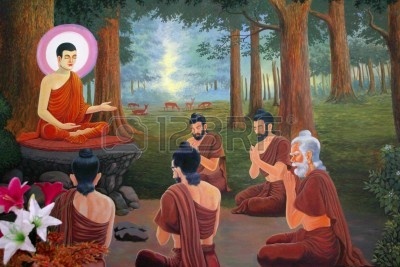However, the problem lies in the fact that it's supposed to be a book that explains the origins and teachings of Buddhism. As Keely points out in his review, when a foreigner attempts to write a story about a country and religion he knows very little about, he will always get it wrong.
Everything in this book feels so posed and exotified. We are invited to gawk at the characters and their "different" lives, as if they were colorful birds in a zoo. The narrative is obsessed with "strange" sights such as mango groves, fig gardens, clay huts, animal sacrifices, and meditation, as if Siddhartha were a stranger in his own country. It's like an American driving around his normal world and being amazed by strip malls, the sizes of the roads, and the plethora of car brands.
In just the first chapter, a bunch of foreign terms are thrown at us without any rhyme or reason. It feels as if Hesse was trying to impress us with his research, but it comes across as flat and immature. Another analogy would be that it's as realistic as an American wondering about the meaning of life by contemplating the Declaration of Independence, The Scarlet Letter, and the Twilight Saga.
Moreover, the character's skin tones are compared to exotic foods, which is infinitely annoying. Just as Americans don't obsess over Pepsi, CNN, or George Washington in their daily lives, a person living in this time period in India wouldn't obsess over mango trees or the Vedas.
Furthermore, there is a "simple but noble savage" vibe that undermines the whole story. The prose is saccharine, simplistic, and in a Winne-the-Pooh style, glossing over any complexity in thoughts or feelings. The characters have superficial emotions and spend the whole book posturing. I can't count how many times "happiness erupted" or "sadness grew" in someone's heart or breast.
In conclusion, I'm sure there are more complex and less exotified portrayals of Buddhism out there. You really won't be missing out on anything if you skip this one. And if you do want to read Siddhartha, find a good translation because the standard one by Hilda Rosner is terrible. The writing is atrocious, and the grammar is horrible. It's not worth your money or time.
















